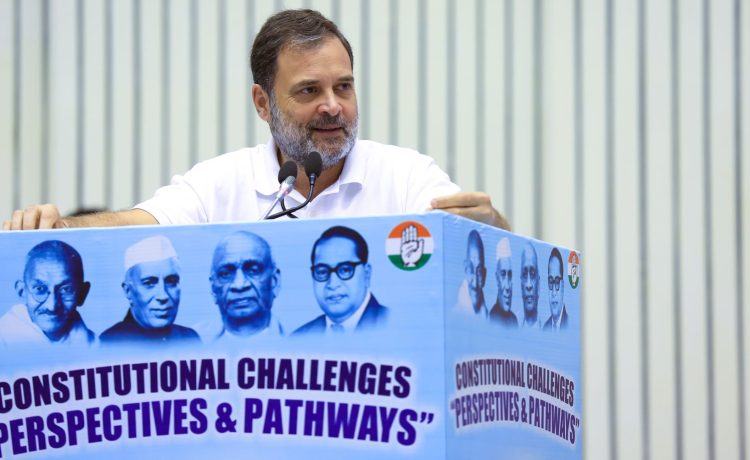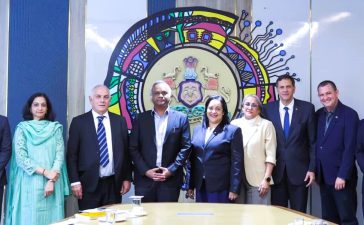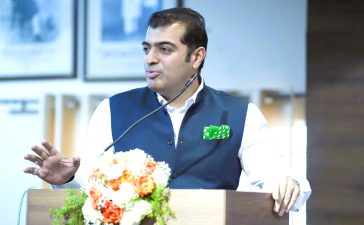Karnataka CM Siddaramaiah Calls for Constitutional Ideals of Social Justice, Equality, and Fraternity
Highlights affirmative action, historical injustices, and Karnataka’s initiatives at New Delhi conference
New Delhi, August 2, 2025 – Karnataka Chief Minister Siddaramaiah emphasized the constitutional imperative of social justice, equality, and fraternity as foundational to India’s democracy during his keynote address at the ‘Constitutional Challenges: Perspectives & Pathways’ conference held at Vigyan Bhawan. The event, organized by the AICC Legal Department, brought together policymakers, legal experts, and civil society leaders to deliberate on India’s constitutional commitments to marginalized communities.
Constitution as a Moral Contract
Siddaramaiah invoked the legacy of Dr. B.R. Ambedkar and India’s first Prime Minister, Jawaharlal Nehru, stating, “The Indian Constitution is not merely a legal document but a moral contract with the most disadvantaged citizens. It was designed to dismantle centuries of caste oppression and ensure justice through affirmative action.”
He highlighted how pre-Independence India denied basic rights to vast sections of society, perpetuating systemic discrimination. “The Constitution’s framers sought to rectify this by embedding equality (Article 14), prohibiting untouchability (Article 17), and mandating affirmative action (Articles 15–16) as enforceable rights, not charity,” he added.
Equality Requires Equity
The CM argued that “blind uniformity cannot achieve equality”, stressing the need for differentiated treatment to uplift historically oppressed groups. “Fraternity and equality are inseparable. Without fraternity, freedom and equality remain hollow,” he said, quoting Ambedkar: “Fraternity is the common bond of brotherhood among all Indians. The Constitution must actively foster this unity in a diverse society.”
Karnataka’s Pioneering Steps
Siddaramaiah outlined Karnataka’s efforts to institutionalize social justice:
-
Reservation Reforms: The state conducts caste surveys to rationalize quotas, ensuring proportional representation for Scheduled Castes (SCs), Scheduled Tribes (STs), and Backward Classes (OBCs).
-
Mandal Commission Implementation: Karnataka was among the first to implement 32% OBC reservation and extend Panchayat-level quotas via the 73rd/74th Constitutional Amendments.
-
SCP/TSP Act: The state allocates funds proportionate to SC/ST populations, a model for equitable resource distribution.
“Social justice cannot be postponed. It must be delivered here and now,” he asserted, citing Congress leaders like Indira Gandhi and Rajiv Gandhi for advancing affirmative policies such as bank nationalization and decentralized governance.
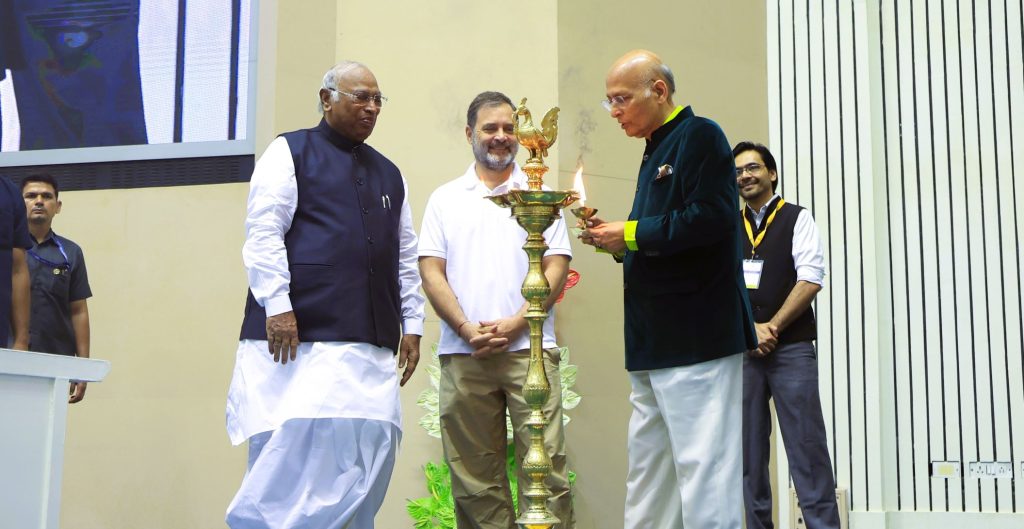
Critique of Current Policies
Without naming political rivals, Siddaramaiah warned against “policies that weaken marginalized communities while consolidating power for dominant groups.” He called for “a pluralistic society where resources reach the last person in line.”
The Road Ahead
Quoting Justice Krishna Iyer (“Social justice is not rhetoric but a process to make equality real”), the CM reiterated his government’s commitment to constitutional ideals. “True equality demands state intervention—not passive neutrality. Karnataka will lead by example,” he concluded.
The speech underscored the Congress party’s resolve to prioritize social justice, positioning it as a counter to central policies perceived as exclusionary.
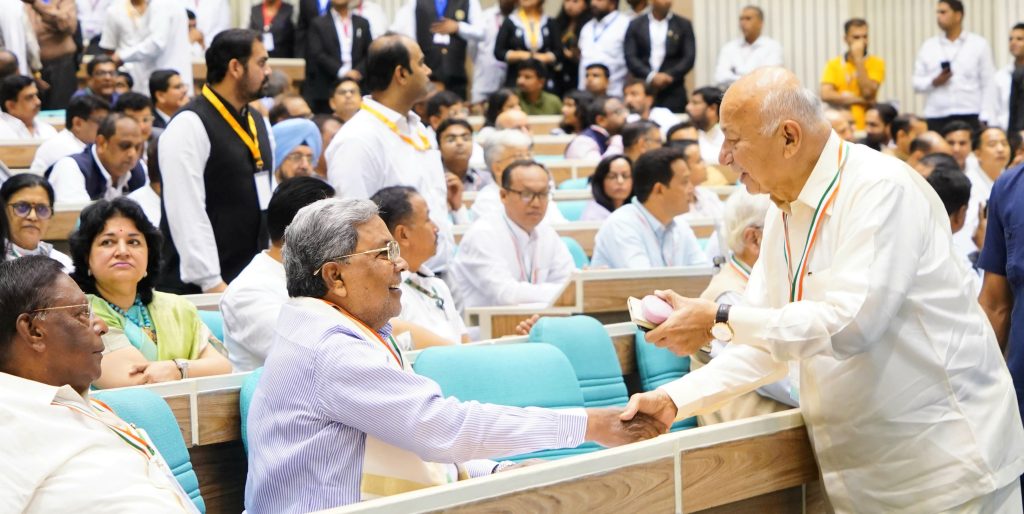
Key Takeaways:
-
Historical Lens: Constitution as redressal for caste apartheid.
-
Affirmative Action: Karnataka’s data-driven reservation model.
-
Political Contrast: Indirect critique of BJP-led central policies.
-
Call to Action: Urgency in delivering justice to marginalized groups.
Key Quotes:
-
On Constitutional Vision:
“The Indian Constitution is not just a legal document—it’s a moral contract with the most disadvantaged.” -
On Affirmative Action:
“True equality isn’t blind uniformity. It requires differentiated treatment to uplift those crushed by centuries of oppression.” -
On Fraternity:
“Without fraternity, freedom and equality remain hollow. The Constitution must actively bind us as brothers and sisters.” (Quoting Ambedkar) -
On Karnataka’s Efforts:
“We conduct caste surveys not to divide, but to ensure justice reaches the last person in line.” -
Political Message:
“Social justice cannot be postponed. The Congress believes it must be delivered here and now.”
![]()

